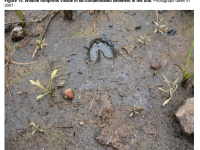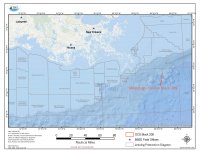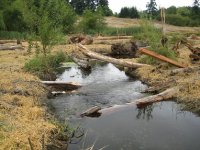$4 million Settlement Reached to Help NOAA Restore Port Gardner and Snohomish River Habitat
January 31, 2018
The U.S. Department of Justice announced a $4 million settlement that will fund some of NOAA’s restoration of sites damaged by industrial pollution in Port Gardner Bay and the Snohomish River in Washington state.
The consent decree (pdf), filed last week, resolved claims that three companies were responsible for discharges of oil and other hazardous substances into the bay and river, damaging natural resources. The companies, Jeld-Wen, Inc., Kimberly Clark Corp. and Weyerhaeuser NR Company, were all a part of multiple industries operating in the Port Gardner assessment area, area since the early 1900s. The area includes the lower Snohomish River, Everett Waterfront, East Waterway, and a portion of Possession Sound near Everett.
Many sites in the area have contamination in soils, groundwater, and sediment due to spills, mishandling of chemicals, and improper chemical disposal. The cleanup started on those sites prior to the settlement, and some have already been completed.
Settlement funds will go towards preserving and enhancing wetlands like marsh, intertidal mudflat, floodplains and riparian habitat, specifically, the Blue Heron Slough Restoration Project in Everett. The project, included in a previously approved final restoration plan, will also involve citizens, engage local partnerships, and continue to protect habitat from future damage.
Contamination in the Snohomish and Port Gardner included harmful substances like arsenic, lead and PCBs which hurt populations of endangered Coastal-Puget Sound Bull Trout, Puget Sound Chinook salmon, and Puget Sound steelhead. Other fish, shellfish and bird populations were also hurt, impacting the ecosystem’s food web. Endangered Stellar sea lions, and Killer and Humpback whales rely on the food web for survival as well.
The assessment of impacts from the hazardous substances and the restoration plan was approved by NOAA, the U.S. Fish and Wildlife Service, the Washington Department of Ecology, the Suquamish Tribe, and the Tulalip Tribes, all co-trustees in the case.
The settlement document is a consent decree. The public is welcome to comment on the consent decree from January 1, 2018, to March 2, 2018. After review of the public comments, the consent decree will be subject to final approval by the court.






